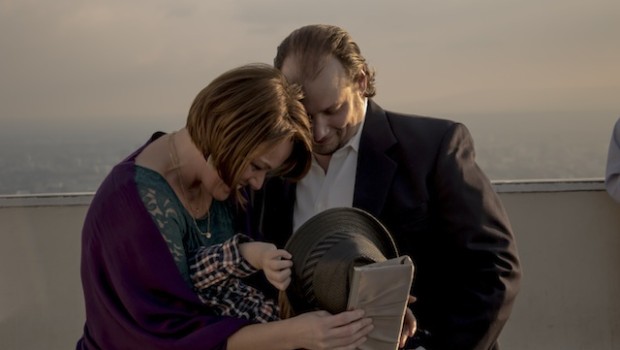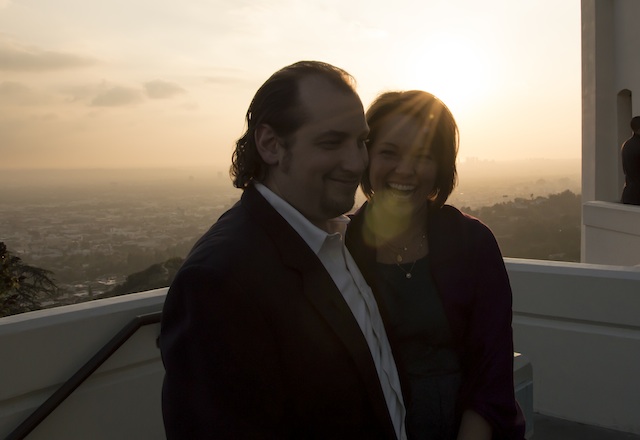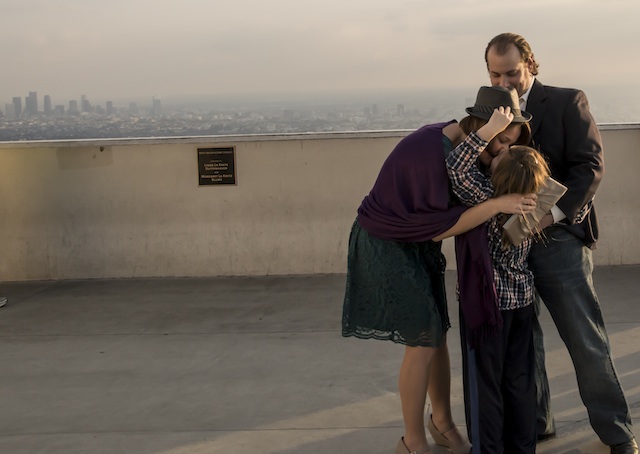Wendy Fontaine on THE PIECES
On a cool Sunday evening, my daughter, Angie, and I were knuckles-deep into a jigsaw puzzle at the kitchen table, under a lamp that cast long shadows of our busy fingers across the jumbled pieces. Wearing our pajamas, with hair still damp from a shared bath, we pored over the shapes, most of them varying shades of blue and green.
First, we gathered all the pieces with smooth edges. They were the corners that would give our puzzle its shape. Then we searched for specific colors and patterns. A patch of orange. A black zigzag. A row of white triangles.
The puzzle shows an underwater ocean scene, and Angie is obsessed with the ocean. She draws pictures of dolphins and reads books about orcas until the facts spring from her mind like a second language. When we go to the aquarium, she pets the baby sharks as though they were hamsters and explains to strangers how sharks are friendly, but misunderstood, creatures.
Slowly, a picture began to form. While Angie worked on a mermaid’s face, round and pale with a long, black mane trailing behind it, I gathered all the pieces with blue and white lines, which would later become the baleen of a giant blue whale.
“Here,” I said, handing her a piece with shiny silver scales. “I think this goes to your mermaid.”
We worked for more than an hour, sometimes talking about sea creatures but mostly quiet with mutual eagerness to see the pieces come together. The night breeze through the kitchen window smelled of grass and jasmine. Mockingbirds sang in the lemon trees.
“I think I’m going to practice calling James ‘dad,'” Angie said, her eyes fixed on the scene unfolding across our kitchen table.
“OK,” I said. I felt a cool gust and wondered how much more to say. Should I give her my blessing? Should I tell her to be cautious? Should I ask questions, or wait to see what else she says? Unsure, I handed her another piece of the puzzle and watched as she tried to figure out where it belonged.
***
I married James on a Saturday just as the sun began to set at Griffith Observatory in Los Angeles. It was the winter solstice, the shortest day of the year, a day some people believe to be symbolic of new beginnings. Maybe that’s true, but we weren’t thinking about any of that. December 21st just happened to be the day all three of us were free.
Getting remarried wasn’t something I ever wanted or planned to do. After Angie’s father fell in love with another woman and asked me for a divorce, I assumed I would always be single, no matter who came into our lives. When it became clear that I could not convince him to stay, Angie and I moved from our family home in New Jersey to a rental apartment in rural Maine, to the town where I had grown up. Life there was small and quiet, which, in that moment, was exactly what I needed it to be.
By the time the divorce was final, Angie had turned three, old enough to recognize that her family was different from most families she saw at our local playground but too young to understand exactly why. She spoke to her father on the phone and saw him occasionally, but their moments of contact became less frequent over time. Eventually the court granted me child support, full custody and full parental rights, meaning all the decisions for raising Angie, all the choices about where she would go to school and who her doctor would be, were mine for the making.
For two years, Angie went to daycare while I went to work, first at the local pharmacy as a technician who filled prescriptions and then as a secretary at a nearby university. As difficult as those days were, they were also tender. We made dinner together, went for long walks through our neighborhood and snuggled under a big blue quilt at night. She and I had lost a lot in the move. We replaced some things over time – the dishes, her toys, a bed. But there were other things that couldn’t be replaced. Trust, companionship, security. Those we learned to live without.
When Angie was four, I got a full scholarship to an exclusive graduate school three thousand miles away in southern California. The idea of leaving our little corner of the world was scary but I knew we wouldn’t be content there forever. Sooner or later we would outgrow that town. And then what? Live with resentment? Wonder what could have been? Instead, Angie and I packed the things we needed, sold and donated the rest, and left Maine for Los Angeles, where we shared an apartment with James, a friend of mine from high school. He and I quickly became a couple. I resisted at first, mostly out of fear, but I couldn’t help falling in love with him. Neither could Angie.
The three of us did the things families do. James and I walked Angie home from school, read books to her under the covers at bedtime. We taught her how to shoot hoops and tie her sneakers. We went to her school when she was student of the month, and went back again when she was a pirate in the school play. We were going through all the motions of married people but matrimony was not something we discussed. We – or rather, I – liked things the way they were. After the disillusionment of divorce, marriage seemed like an exercise in pointlessness. It was not a guarantee of security or a promise of eternal happiness. It was just a word. So I purposefully stayed single, thinking that if history were to repeat itself, if James were to fall out of love with me, Angie and I could pack up again and move on. Nobody would get hurt. No one would have to suffer.
Then something happened that made me reconsider.
The summer after grad school, kidney stones sent me to the emergency room. Seven stones lodged inside my left kidney, and another blocked the tube leading to my bladder. The obstruction filled my kidney with urine, putting me at risk for infection. I was too sick to eat, to work, to walk Angie to school or even bathe her at night. I had no health insurance, which meant depleting my savings to pay the medical bills. For weeks, I lay in bed in agony while James took care of my daughter, not just because I couldn’t but because he wanted to. She was his kid too.
One night, while recovering from my second kidney surgery, I hobbled out to the living room for a glass of water and found them on the couch together. James was asleep. Angie was lying across his chest, clutching her favorite stuffed cow and watching Superman. Her head rose and fell with each of his exhalations. I stood in the doorway for a moment admiring them. In James, Angie and I had found someone we could depend on, someone whose love was steady and solid. He was honest, trustworthy and fearless. As I watched them on the couch, I knew it was too late to protect ourselves. James and I were already married, not on paper but in every other way. Apart, we were three pieces. Together, we were whole.
***
On a Friday morning, while Angie was in school, James and I drove to the county courthouse to get a marriage license. It was easier than either of us expected. We simply paid the fee and signed the paperwork. On our way out of the courthouse, we peeked inside the chapel, where a magistrate was performing wedding ceremonies. There were rows of folding chairs, a plastic trellis near the altar, artificial bouquets and a fake cake in the corner.
We couldn’t get out of that room fast enough.
James and I wanted nothing to do with a traditional wedding. No church, no cake, no fancy reception. Big weddings don’t suit our personalities, or our budget. We decided instead to have a small, private ceremony, mostly so Angie could feel like she was part of our union – which she was. We chose the observatory because it was one of the first places James took Angie and me when we came to California. Back then, she and I stood on the balcony of the west terrace, looking down on a million sparkling city lights, hoping our new home would bring us happiness.
For James and me, getting married was more of a business decision than a romantic gesture. Marriage brings certain perks, like shared health insurance and tax benefits. If I got sick again, James could make medical decisions for me, visit me in the hospital or, if something serious were to happen, be a permanent parent to Angie. Exchanging vows made financial and legal sense. But for Angie, getting married represented something else entirely.
On our wedding day, my daughter wore a blue plaid shirt, a gray necktie and a black fedora. I wore a green lace dress from my favorite store, and James had on a dark sport coat and jeans. We met Eric, our officiant, on the west terrace, where hundreds of spectators had gathered to watch the sun set on the winter solstice. Eric opened his notebook and began to recite our vows. The strangers around us grew quiet. As James and I repeated the promises of marriage to one another, Angie stood between us, one hand on me, the other on the man who was officially becoming her stepfather. She looked up at us with a smile different than any smile I had seen before. She wasn’t just happy. She was gratified. When James and I kissed, the crowd cheered. We kissed again, and Angie put her arms around us.
The ceremony took all of 90 seconds, and it changed virtually nothing about my life with James. He and I would woke up the next day feeling exactly the same way about each other. For Angie, though, it changed everything.
In the days following our wedding, she seemed friendlier and more outgoing at school. At home, she gave hugs and kisses more often. She started doing new things, like crossing the street to the library on her own and getting the mail by herself. These days, when she needs something, she goes to James as much as she comes to me. And when the three of us go for a walk, it is often his hand she reaches for.
That day at the observatory, something clicked into place for my daughter. She found a sense of confidence and a kind of connectivity that she hadn’t felt in a long time, if ever. Her joy made it clear: James and I had made the right decision by getting married, not for us but for Angie. Sometimes the things we do mean the most to the people we least expect, in ways we could never anticipate. I don’t fully understand why the wedding mattered to her. I am just grateful that it did.
***
On that evening at the kitchen table, with the jigsaw puzzle slowly revealing itself to us as an ocean full of mermaids and whales and exotic sea life, Angie reached for the last piece and snapped it into place.
“I love that feeling you get when it all comes together,” she said. “Don’t you?”
I nodded and kissed her head.









3 Responses to Wendy Fontaine on THE PIECES